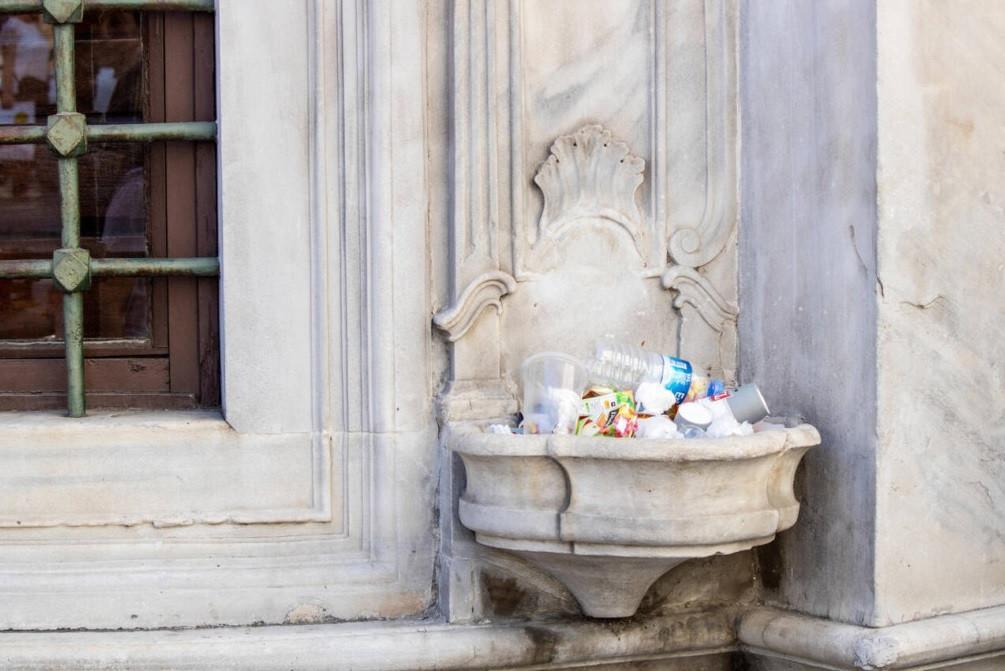
The annual amount of plastic waste produced in Turkey in 2021 is nearly 5.6 million tons, according to an academic publication, which underlines Turkey as the ninth country that produces the most plastic waste in the world.
Mehmet Murat Monkul and Hakkı Oral Özhan, two academics from Istanbul-based Yeditepe University, have published an article regarding the relationship between geotechnical engineering and microplastic contamination in soils.
Hakkı Özhan said that the annual amount of plastic waste produced in the country last year was nearly 5.6 million tons, and this amount, which can be considered high for Turkey, is very thought-provoking in terms of environmental pollution and health.
He added that Turkey ranks ninth in the world with this data.
Özhan also pointed out that nearly 52 million tons of domestic waste are accumulated in landfills annually in European Union countries according to a study conducted in 2018.
“We see that nearly 3 billion microplastic particles are released into the environment. Even the data in European countries is an important figure in terms of showing the dimensions of the incident. We can predict that the situation worldwide is much worse,” Özhan noted.
“Studies show us how dangerous the presence of microplastics in the soil, as well as in the seas and waters, is. In studies conducted in Turkey, it has been observed that microplastics have a negative effect on living healthy,” Özhan added.
He also underlined the waste import and pointed out that countries have started to take measures in this regard in recent years.
Environment, Urban Planning and Climate Change Minister Murat Kurum said last week that the import of hazardous and non-recoverable wastes is strictly prohibited in Turkey.
Risk for food chains
For his part, Monkul stated that microplastics enter the food chains of sea, land and air creatures as intruders.
“We do not only pollute the environment, but we also continue to include increasing amounts of a synthetic substance, whose long-term and biological effects we do not know, into the food chain of living creatures,” Monkul said.
Emphasizing that the fight against microplastic pollution should be handled with a multidisciplinary approach, the expert noted that geotechnical engineers also have important duties here.
“About 400 million tons of plastic are produced annually all over the world. In some projections, it is stated that this will double by 2050. Unfortunately, the public, except for a part of the scientific world, is not aware of the seriousness of the situation,” he said.